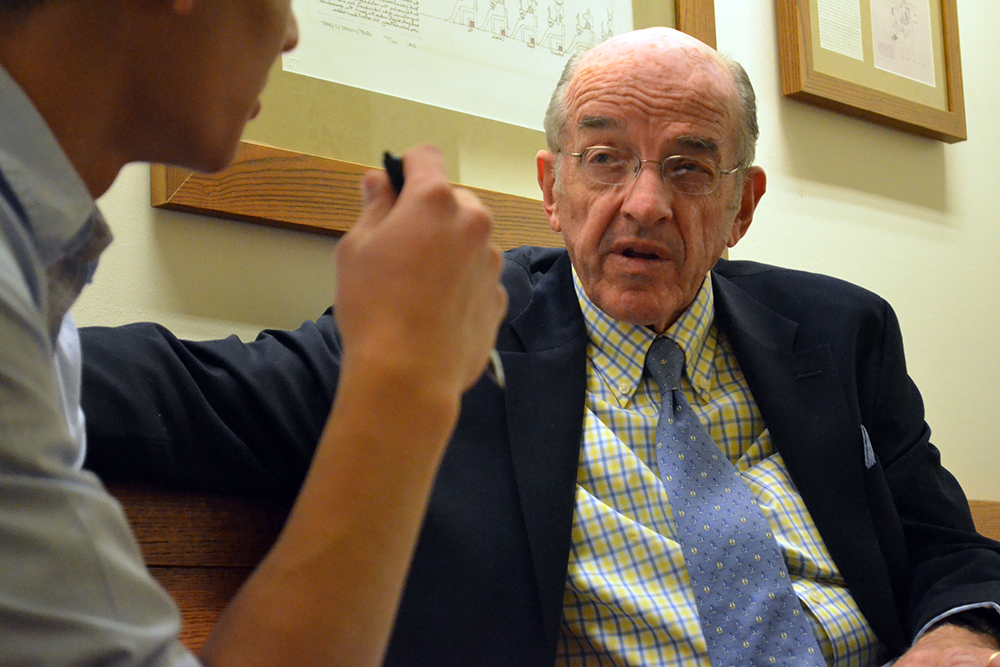
Former FCC commissioner Michael J. Copps speaks with the CU Independent’s Ellis Arnold. (Elizabeth Rodriguez/CU Independent)
The former commissioner of the Federal Communications Commission (FCC), Michael Copps, met with CU law students this week to discuss the country’s policies on media and telecommunications. Copps took some time to sit down with the CUI and talk about the future of the Internet in the U.S.
Copps worked as a commissioner for the FCC from 2001 to 2011. During that time, he influenced regulations the FCC placed on radio, television and the Internet and witnessed firsthand the deterioration of the FCC’s ability to protect the “open Internet,” also referred to as net neutrality.
The concept of net neutrality means no Internet provider should be able to block or charge more money for certain content. In 2002, the FCC voted to classify broadband Internet as an “information service” rather than a telecommunications service, and therefore something that could not be as strictly regulated.
“That was a bad step down the wrong road,” Copps said. “It’s been particularly responsible for the fact that we now see some very unwelcome developments in the Internet with the growing power of huge, conglomerated communications firms.”
As media ownership is shared by fewer and fewer companies, corporations have been able to increase their control over what information people can and cannot access. Comcast ended up in federal court in 2010 when it began to slow down Internet traffic on the peer-to-peer file sharing site BitTorrent. Verizon was involved in a similar case the following year; both companies won their cases.
Copps referred to the different sections of the Telecommunications Act of 1996, under which the government cannot regulate Title I services. The FCC’s current definition of broadband Internet puts it under Title I authority and they have not reclassified it, even though the courts have declared that the agency has no power under the current definition. According to Copps, the “influence and power of special interests and big money” is keeping the FCC from changing the definition.
“This goes to the very heart of what democracy is all about,” Copps said. “If we don’t have an open Internet, and we have the ability of a few gatekeepers to control content or to tell you what news and information you’re going to get, or tell you what news and information you’re not going get … then you are endangering our ability to be informed and to govern ourselves.”
To fight back on the issue, Copps works with Common Cause, a nonprofit watchdog organization.
“Common Cause is about empowering citizens and curbing the power of the special interests,” Copps said.
“Some issues are dark cloud issues, but they have silver linings. And the thing with the open Internet question is that people are beginning to pay attention to this now,” Copps said. “It might be our last opportunity for a long time to really organize and get involved and try and have a say in the future.”
Contact CU Independent Staff Writer Ellis Arnold at ellis.arnold@colorado.edu.
